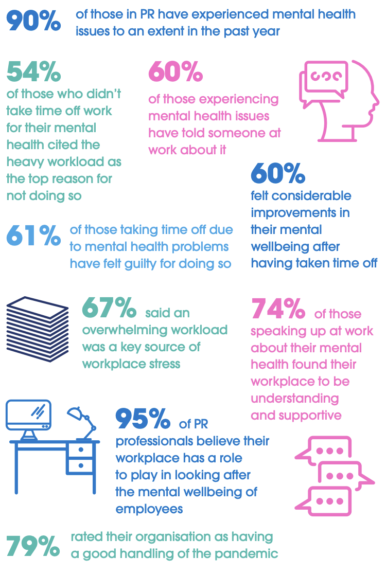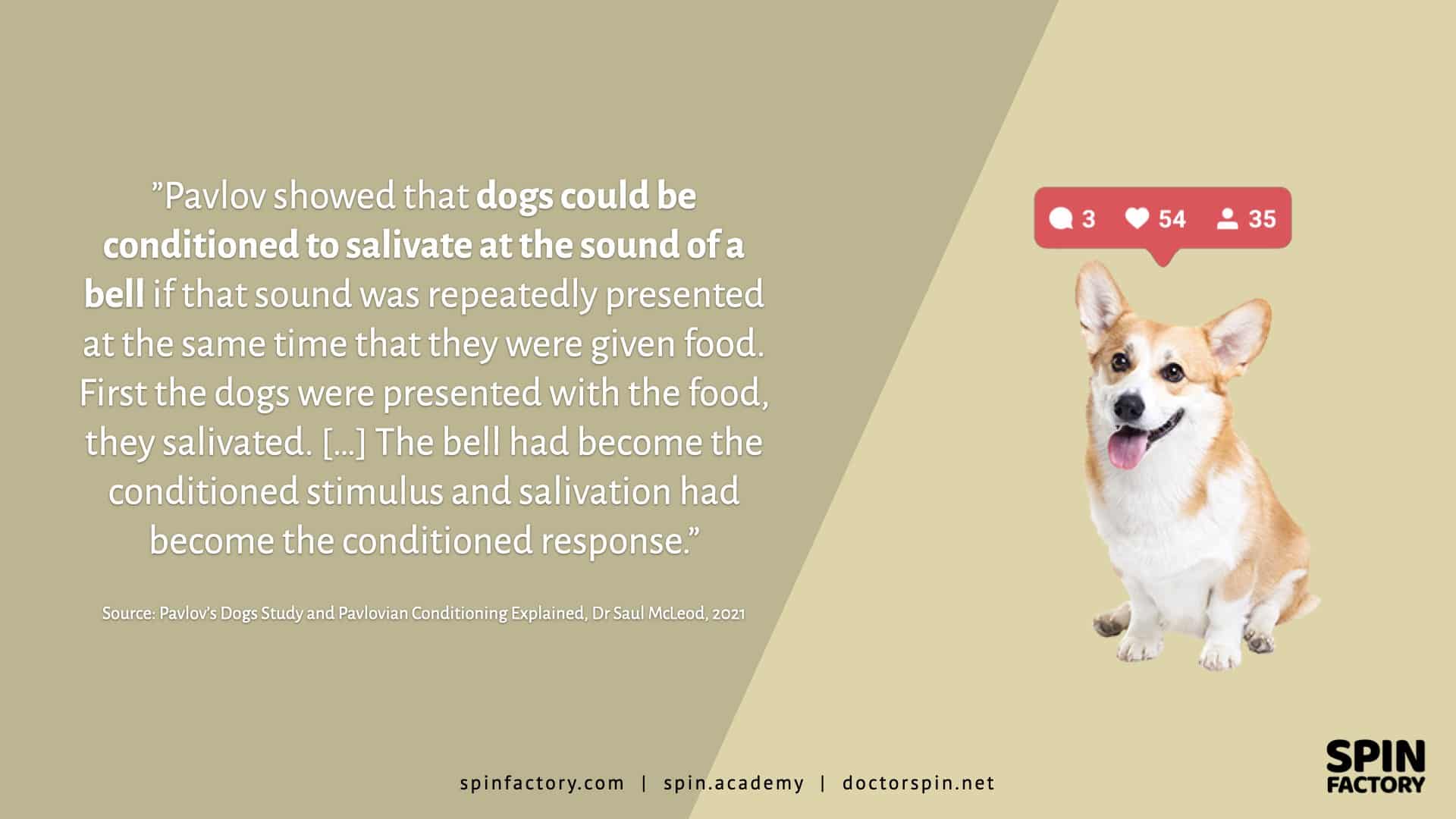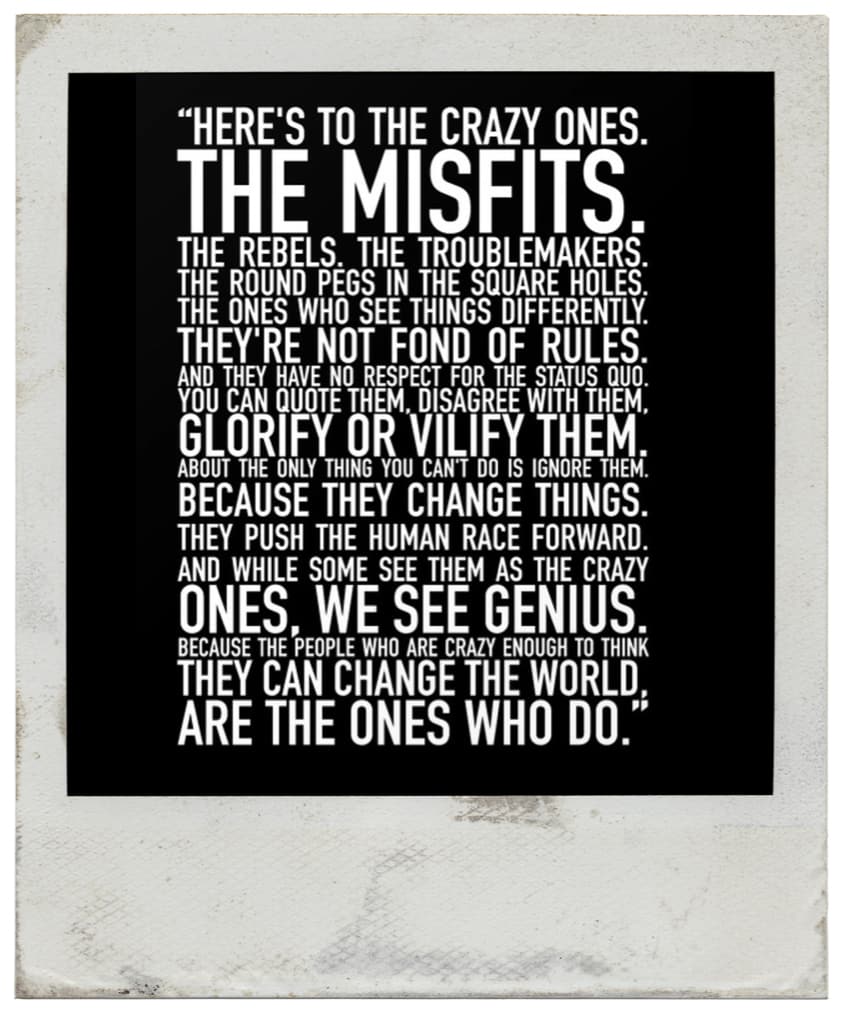PR is stressful — take your mental health seriously.
This post will provide several powerful mindsets and techniques to help communicators- and PR professionals avoid stress and mental illness.
According to a recent study, 41% of all sick leaves in the Swedish communications industry are mental illnesses.
During my 17 years in the PR industry, I know of countless former industry colleagues who suffered periods of stress-related mental health problems.
And I’m no exception; in 2016 (the same year I was awarded Cision Scandinavia’s PR Influencer of the Year Award), I had to turn the volume down on my career to get my head back straight.
It took me three whole years to get back into mental shape.
Here we go:
PR is a Stressful Job, But …
Public Relations is one of the most stressful jobs in the world. Slowing down in a world where everything is instantaneous can be challenging. We work long hours and rarely get paid what we deserve.
“Our annual State of the Profession report (2019) revealed that 21% of public relations practitioners live with, or have previously lived with, a diagnosed mental health condition reflecting national data. Over half of those respondents said their work contributes highly to their diagnosis. Around a quarter (23%) of PR professionals say they have taken sickness absence from work on the grounds of stress, anxiety or depression. This is an issue that has far reaching consequences for employees and businesses. Organisations have a responsibility to take steps to protect the wellbeing of all their staff.”
Source: Chartered Institute of Public Relations 1Chartered Institute of Public Relations. (2019). Mental Health. Cipr.co.uk. https://cipr.co.uk/CIPR/Our_work/Policy/Mental_Health.aspx
PR professionals often face the mental stress of working in a high-pressure environment. This can lead to more severe mental health problems like depression or anxiety.
Mental illness is an epidemic, with 1 in 5 Americans suffering. This is not only a mental health issue but also a social problem. And the PR- and communications industry seems especially afflicted.
Why are PR jobs so stressful?
Are we … weak?
Doctors and nurses save lives. Construction workers and engineers build homes, hospitals, and roads. In contrast, we might brainstorm names for a corporate insurance podcast that will likely be forgotten in six months.
What right do PR professionals have to complain about our corporate jobs? Was the coffee machine broken this morning?
Low Professional Self-Esteem
We all communicate all the time. Still, no one knows what the heck is going on. When communicating, we know more about quantum mechanics than what’s happening inside our brains.
We don’t know how our brains grew to consume 20% of all our energy. Did we develop large brains because we strived for complex forms of communication — or was it the other way around? Why have we evolved to think and communicate with such complexity when it was unnecessary for early hunter-gatherers? 2If you’re curious about how little we know about the origins of languages, Noam Chomsky has plenty to say on the subject. 3There’s also scientific evidence that our brains are shrinking and that we’ve lost a chunk the size of a tennis ball in the last 20,000 years. I’ll save that nugget of information for another … Continue reading
Most people work at jobs where they know things. We don’t.
We seldom know anything for sure. Although I have been working with PR every day since 2005 (and studied it at the university between 2000 and 2005), I rarely know if the press release I wrote will take off.
I don’t know if the pitch will result in a full-page article. I don’t know if the website copy will convert at 0,5% or 3%. I don’t know how many subscribers will forward that last newsletter. Will our brilliant PR strategy work? I mean, I hope so. 4There are no standards when it comes to conversion rates. To find benchmarks for your website’s niche, you should expect that online numbers might be exaggerated for effect. Still, conversion rates … Continue reading
What if something in our professional life worked once before? We can almost always be sure that it won’t work precisely the same way ever again. The gist is that we don’t know — but we have to deliver tangible results repeatedly.
If you’re PR- and communications, and you don’t have a touch of low professional self-esteem, please let the rest of us know how you do it.
Theory of Mind: A Blessing and a Curse
A “PR superpower” is the ability to imagine oneself in another person’s situation and reason from their perspective.
Those with strong empathic skills can recognise hidden motives and emotional subtexts behind surface behaviour. They can anticipate escalation before it occurs, intercept miscommunications early, and act with strategic empathy.
Such skills are critical in media training, negotiations, and crisis response, where understanding intention is as important as what is said.
The term “theory of mind” was first coined by Premack and Woodruff (1978) and referred to people’s thoughts and reasoning about their minds and those of others. The assumption that we need a theory for our thoughts is called introspection. 5Theory of mind. (2023, December 4). In Wikipedia. https://en.wikipedia.org/wiki/Theory_of_mind 6Schwitzgebel, E. (2019). Introspection (Stanford Encyclopedia of Philosophy). Stanford.edu. https://plato.stanford.edu/entries/introspection/
The theory of mind is the ability to attribute mental states — thoughts, intents, desires, pretensions, and world-views — to oneself and others and to understand how those mental states influence behaviour.
This form of empathy is a critical developmental skill that helps children experience empathy and understand other people’s feelings and intentions. 7Baron-Cohen, S., Leslie, A. M., & Frith, U. (1985). Does the autistic child have a “theory of mind”? Cognition, 21(1), 37 – 46. 8Premack, D., & Woodruff, G. (1978). Does the chimpanzee have a theory of mind? Behavioral and Brain Sciences, 1(4), 515 – 526.
In a way, the theory of mind is the psychological antithesis to the philosophical idea of solipsism:
Solipsism = the philosophical idea that only one’s own mind is sure to exist and that knowledge of anything outside the self is ultimately unknowable.
A Brief History of Theory of Mind
The theory of mind was first introduced in the 1970s by developmental psychologists studying how children understand others’ beliefs, intentions, and emotions.
Through various experiments, researchers discovered that children begin to understand that people have different thoughts and feelings based on their unique perspectives and experiences around age four. 9Theory of mind. (2023, April 21). In Wikipedia. https://en.wikipedia.org/wiki/Theory_of_mind
As the study of the theory evolved, researchers found that it plays a crucial role in social cognition and interpersonal relationships. It enables us to predict and interpret others’ actions, empathise, and communicate effectively. 10Apperly, I. A. (2011). Mindreaders: The cognitive basis of “Theory of Mind”. Psychology Press.
Today, the theory of mind is considered an essential aspect of human interaction, which can benefit PR professionals in numerous ways.
“Poor theory of mind skills lead to preferential attention to negative facial expressions in interpersonal interactions, potentially due to vigilance for threat.”
Source: Scandinavian Journal of Psychology 11Ribeiro, L., & Fearon, P. (2010). Theory of mind and attentional bias to facial emotional expressions: a preliminary study. Scandinavian journal of psychology, 51 4, 285 – 9. … Continue reading
Theory of Mind in Public Relations
A better understanding of other people’s inner worlds could improve anyone’s communication skills.
“In psychology, theory of mind refers to the capacity to understand other people by ascribing mental states to them (that is, surmising what is happening in their mind). This includes the knowledge that others’ mental states may be different from one’s own states and include beliefs, desires, intentions, emotions, and thoughts.”
Source: Wikipedia 12Theory of mind. (2023, November 28). In Wikipedia. https://en.wikipedia.org/wiki/Theory_of_mind
PR professionals and communicators with a strong theory of mind can better understand their audience, create more compelling messages, and build lasting relationships.
Here are some real-life situations where the theory can make a difference for PR professionals:
Boost Your Theory of Mind
To improve your theory of mind as a PR professional, consider these priorities:
Beware of Empathic Stress
As PR and communications professionals, we must always consider what others think and feel. Our empathic communication skills can potentially make us more susceptible to emotional stress. 13Silfwer, J. (2022, January 27). PR and Mental Health Problems. Doctor Spin | the PR Blog. https://doctorspin.net/mental-health-problems/
Alas, a strong theory of mind can be a stressor.
The theory of mind might result in empathic resonance, which absorbs the emotional states of others. For example, you may internalise a client’s shame during a media crisis, a journalist’s frustration during an interview, or a colleague’s anxiety before a launch. Over time, this becomes a low-grade, persistent form of vicarious trauma.
If emphatic pressure is allowed to build for long periods, various mental health problems might follow.
“I always thought burnout happened when you work too much. Now I get it. It’s investing emotionally and not getting a return on that investment.”
— @spamap
Read also: Theory of Mind: A Superpower for PR Professionals
How To Avoid Stress in PR
Public relations professionals often report feeling overworked, stressed, and anxious. In 2019, PR ranked eight out of the 10 most stressful jobs in the US. 14Blagojević, I. (2023, May 19). PR Statistics 2023. 99firms.com. https://99firms.com/blog/pr-statistics/

However, many are not aware of the stressors present in their everyday work. These stressors can be related to the job or personal struggles affecting work performance. When these stressors are allowed to pile up, stress can negatively impact mental health.
I know — I’ve been there myself.
The Covid-19 pandemic isn’t doing us any favours, either. In a recent newsletter, PR blogger Arik Hanson writes:
“In my conversations with folks the last couple of weeks, one theme is coming through loud and clear: People are at their wit’s end. Burnt to a crisp. FRIED.”
I’m not a medical professional, but the five strategies below have helped me improve and stay mentally healthy. Here are some ways to reduce stress levels while making an impactful career.
1. Stop Moving the Goalposts
One of the many things I’ve learned as a PR consultant is that clients are never satisfied for long. If you deliver top-notch results, clients will reward your efforts by expecting the same output level (or higher) at the same compensation level the next time.
If I deliver way above what I’m being compensated for, it’s probably because I got lucky that time. One could wish that clients would remember this if I’m not so fortunate at some point. But no, that’s not the way the business world works.
And it’s no different working in-house, either. There’s always someone walking around with unreasonable expectations, which also outrank you in the workplace.
But it’s still up to you to constantly manage such expectations. Today, I’m always reasonably explaining to everyone around me what to expect.
I’m describing when we got lucky due to unforeseen circumstances.
I’m explaining before, during, and after streaks of bad luck.
2. It’s “Hell Yeah” or “No”
Inspired by Derek Sivers’s book “Hell Yeah or No,” I’ve realised I used to be too quick to say yes. 15Sivers, D. (2020, July 12). Hell Yeah or No. Sive.rs. https://sive.rs/n
Today, if I say, “Hell yeah,” it’s a yes. If I’m not too enthusiastic but can’t say no, I start discussing what to remove from my to-do list. If I can trade doing something that’s “Fine, I guess,” and get rid of something that’s “Oh god, that’s pointless,” then I’m still better off than when I had my coffee that morning.
It’s Pavlovian conditioning. If you take on everything, co-workers will quickly learn to send deliverables your way.

If you punish bad suggestions by forcing tough decisions, you will increase your co-workers’ cognitive load. This type of negative reinforcement will lessen their unwanted behaviours.
The basic rule of behavioural psychology is that you get more of what you reinforce.
3. Hug Lots of Trees Weekly
Many victims of work-related stress often say the same thing: nature heals.
And I agree. Nothing healed me more than spending time in nature. In my case, I took an interest in nature photography (which is why every blog post on Doctor Spin has a cover photo taken from some tree-hugging excursion).
Today, whenever I feel the slightest stress creeping up on me, I grab my camera and head off into the woods.
4. Force Positive Change by Removing Friction
One idea to combat stress is to add activities to your life — and that’s fine. But adding too many non-work-related hobbies to help you relax and have fun can become a stressor. This is problematic because if your life is causing you mental health problems, you must change your life.
Life change is easier said than done. Adding more to your life might not be the correct answer. At least, it wasn’t for me.
I found that removing minor daily frustrations had the most significant impact. In 2016, when I was in my worst state, I was irritated at something every ten minutes of every waking hour. If I feel irritated over anything small or insignificant, I immediately remove that friction from my life.
I used to be irritated about coming up with what to cook for dinner, so I automated weekly grocery deliveries. I used to be annoyed over having a slow computer, so I bought a fast laptop and built an even speedier desktop. I used to be irritated over being interrupted by pointless telephone calls and voice messages, so I created a personal phone policy.
You can change your life by removing one frustration at a time.
5. Liberate Your Inner Weirdo
I know you’re a little bit weird; we all are.
Yes, I’m a total weirdo. And I think that you’re probably pretty weird, too.
My best advice is to allow yourself to be you — for your mental health’s sake. It’s liberating. And people are, at least in my experience, surprisingly forgiving as long as you’re authentic to yourself.
In the words of Steve Jobs, “Here’s to the crazy ones.”

Take Your Mental Health Seriously
Stress is a part of life. It comes in many forms and can be caused by many factors. Public relations professionals are often expected to take on many different tasks. Juggling various responsibilities can quickly pile up and lead to mental illness if not dealt with properly. 16According to a recent study, multitasking will result in a 40% loss of efficiency.
Individuals experiencing these issues should seek help and not be afraid to speak up about their problems to loved ones. Or to seek help from a medical professional.
Stress leading to burnout and mental illness is real. You’re not weak, but rather too strong for your good. Our industry is losing too many professionals to this silent pandemic. 17PR blogger Jessica Pardoe points to a UK survey 2020, in which 58% of over 2,000 employees reported some form of stress at work, and almost 70% had experienced it in general. Over 60% claimed they … Continue reading
I found my path to wellness. It didn’t include yoga, group therapy, or green tea. But maybe your path will?
If I can leave you with just one insight: Take your stress symptoms seriously. The longer you wait to take action, the longer your path to recovery will be.

THANKS FOR READING.
Need PR help? Hire me here.

What should you study next?
Spin Academy | Online PR Courses

Spin’s PR School: Free Corporate PR Course
Explore this Free Corporate PR Course to learn strategic communication insights and techniques and stay ahead in the competitive public relations industry.
Corporate Communications
Agency Collaboration
Corporate Messaging
Corporate Challenges
Learn more: All Free PR Courses
💡 Subscribe and get a free ebook on how to get better PR.

Annotations
| 1 | Chartered Institute of Public Relations. (2019). Mental Health. Cipr.co.uk. https://cipr.co.uk/CIPR/Our_work/Policy/Mental_Health.aspx |
|---|---|
| 2 | If you’re curious about how little we know about the origins of languages, Noam Chomsky has plenty to say on the subject. |
| 3 | There’s also scientific evidence that our brains are shrinking and that we’ve lost a chunk the size of a tennis ball in the last 20,000 years. I’ll save that nugget of information for another blog article. |
| 4 | There are no standards when it comes to conversion rates. To find benchmarks for your website’s niche, you should expect that online numbers might be exaggerated for effect. Still, conversion rates seem to adhere to the engagement pyramid in which approximately 1% are actively engaged. Interestingly, few discuss what happens with the 99% that don’t convert. |
| 5 | Theory of mind. (2023, December 4). In Wikipedia. https://en.wikipedia.org/wiki/Theory_of_mind |
| 6 | Schwitzgebel, E. (2019). Introspection (Stanford Encyclopedia of Philosophy). Stanford.edu. https://plato.stanford.edu/entries/introspection/ |
| 7 | Baron-Cohen, S., Leslie, A. M., & Frith, U. (1985). Does the autistic child have a “theory of mind”? Cognition, 21(1), 37 – 46. |
| 8 | Premack, D., & Woodruff, G. (1978). Does the chimpanzee have a theory of mind? Behavioral and Brain Sciences, 1(4), 515 – 526. |
| 9 | Theory of mind. (2023, April 21). In Wikipedia. https://en.wikipedia.org/wiki/Theory_of_mind |
| 10 | Apperly, I. A. (2011). Mindreaders: The cognitive basis of “Theory of Mind”. Psychology Press. |
| 11 | Ribeiro, L., & Fearon, P. (2010). Theory of mind and attentional bias to facial emotional expressions: a preliminary study. Scandinavian journal of psychology, 51 4, 285 – 9. https://doi.org/10.1111/j.1467 – 9450.2009.00797.x |
| 12 | Theory of mind. (2023, November 28). In Wikipedia. https://en.wikipedia.org/wiki/Theory_of_mind |
| 13 | Silfwer, J. (2022, January 27). PR and Mental Health Problems. Doctor Spin | the PR Blog. https://doctorspin.net/mental-health-problems/ |
| 14 | Blagojević, I. (2023, May 19). PR Statistics 2023. 99firms.com. https://99firms.com/blog/pr-statistics/ |
| 15 | Sivers, D. (2020, July 12). Hell Yeah or No. Sive.rs. https://sive.rs/n |
| 16 | According to a recent study, multitasking will result in a 40% loss of efficiency. |
| 17 | PR blogger Jessica Pardoe points to a UK survey 2020, in which 58% of over 2,000 employees reported some form of stress at work, and almost 70% had experienced it in general. Over 60% claimed they had experienced at least mild anxiety symptoms, and 58% said the same for depression. In Pardoe’s blog post on mental health, she argues for the importance of openly discussing these issues in the PR industry. |


